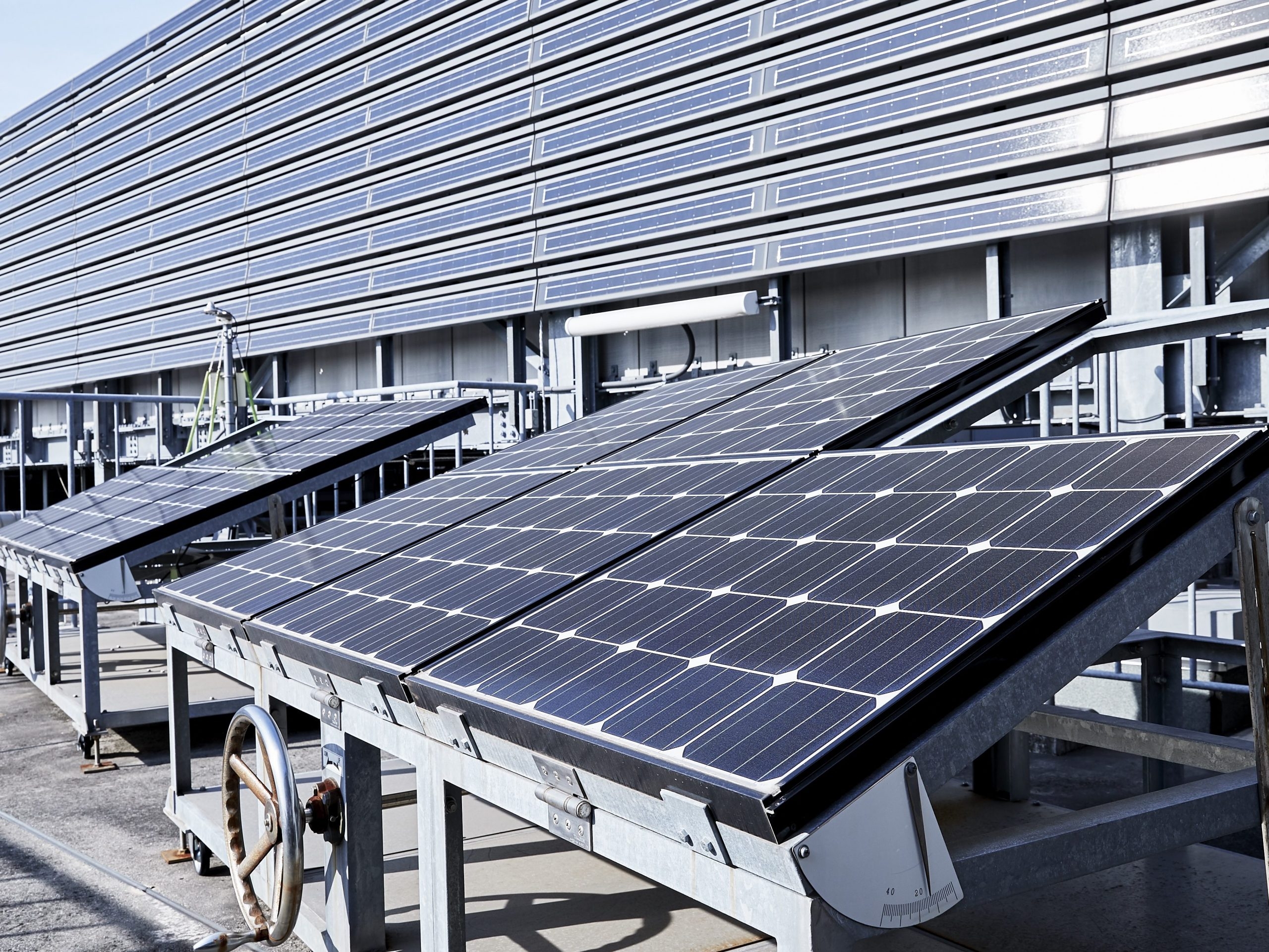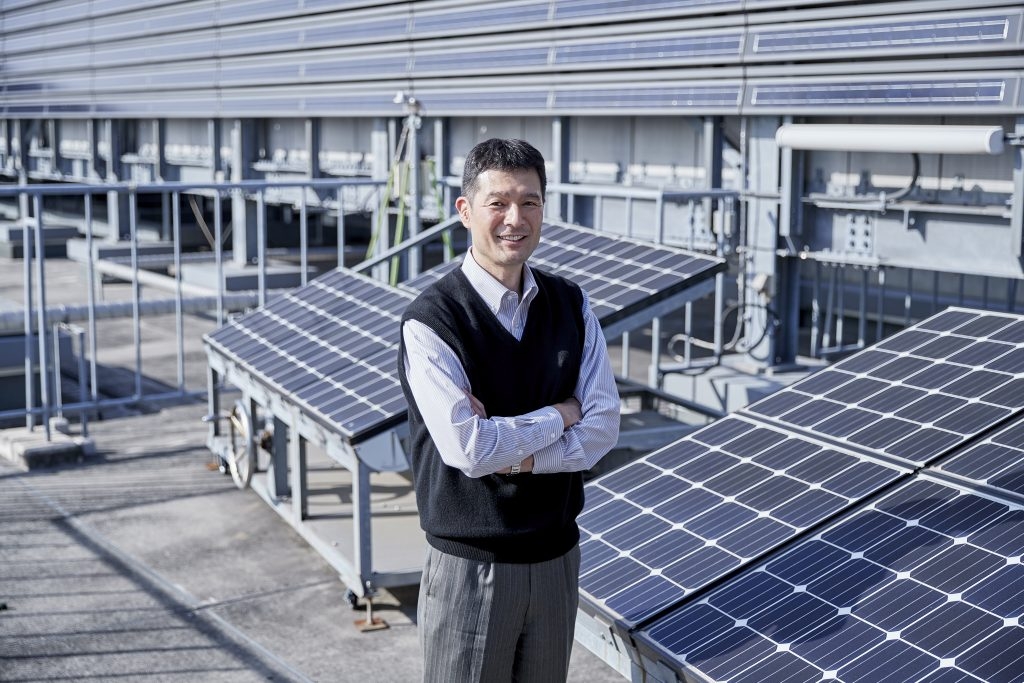Given current concerns about global warming, there is an increasing focus on renewable energies. Renewable energy is energy that allows for indefinite usage. Wind, water and geothermal are all examples of such energy. And the renewable energy that attracts the most attention is the energy that we can obtain from sunlight.
Unlike petroleum and coal, which are finite resources, sunlight is a virtually inexhaustible energy resource. What is more, generating electricity from sunlight produces no CO2 to contribute to global warming. Also, unlike wind or geothermal energy, which require a lot of land or large-scale equipment to generate, solar power is quick and easy, needing only sunlight to produce electricity. However, the amount of electricity you can produce from a small surface area is minuscule, and you cannot generate any electricity at night. Thus, new systems need to be developed which facilitate the efficient storage and usage of solar energy.

This is the challenge that is being worked on by researchers in the Ueda Laboratory in the Faculty of Engineering, Department of Electrical Engineering.
The researchers are pursuing a three-pronged approach that examines such questions as, “How can the variable output of solar power, when left to the fluctuations of the weather, be made into an efficient and stable source of energy?” and “How can solar energy be adapted to the daily needs of society?”
[1] Evaluate solar cells and peripheral equipment
・Study the variation in power output under different meteorological, geographical and technological conditions
・Develop a monitoring system which can be used to check that equipment is operating safely and soundly
Through this evaluation process, work on being able to anticipate and, to some degree, predict the amount of daily solar energy output. Use predictions to help ensure that excess power does not go to waste.
Predictions should not be limited to the medium to long term; it should be possible to predict output based on tomorrow’s weather forecast.
[2] Develop a control model for electricity usage
・Study the variation in usage volume under different housing, location and time conditions
・Analyze the buying and selling of surplus power by aggregators (i.e., businesses which balance the difference between power demand and supply)
It is difficult to store large amounts of electricity; thus, it is essential that a balance between output and consumption be maintained as much as possible. However, in the case of solar power, electricity can only be generated during the day, while much of the actual demand for it is during the night.
To address this, the Ueda Laboratory is developing a control model for maintaining balance between the amount of electricity generated and the amount consumed. Optimization of the proposed control model differs depending upon housing and location conditions.
[3] Research large-scale introduction of solar power
In order to introduce solar power on a large-scale, it is essential to know what the daily amount of sunlight is that will be used as input energy for the system and to ascertain how much power can be generated from that. It is also essential to evaluate the impact of this power on the power system.
In the Ueda Laboratory, measurements and data collection are performed each minute as part of the development of an advanced data analysis method. This data analysis represents a step towards the large-scale introduction solar energy.

“By incorporating different ideas about energy usage, such as lowering daytime electricity costs in order to achieve a more comfortable lifestyle and facilitating flexibility in surplus energy usage in order to ensure no energy is wasted, I hope to make people more aware of, and focused on, solar power,” says Professor Ueda.
If the research being carried out in the Ueda Laboratory helps make it so that everyone can, one day, have access to clean and convenient solar energy, the dream of a sustainable society will no longer be a dream.
Currently, one of the major drivers of global warming is the large amount of CO2 being emitted. The ultimate goal of the researchers in the Ueda Laboratory is to increase the amount of energy consumption derived from solar power so that, eventually, we will reach a net zero balance between carbon emissions and carbon absorption, thereby achieving carbon neutrality.
■ Main research content